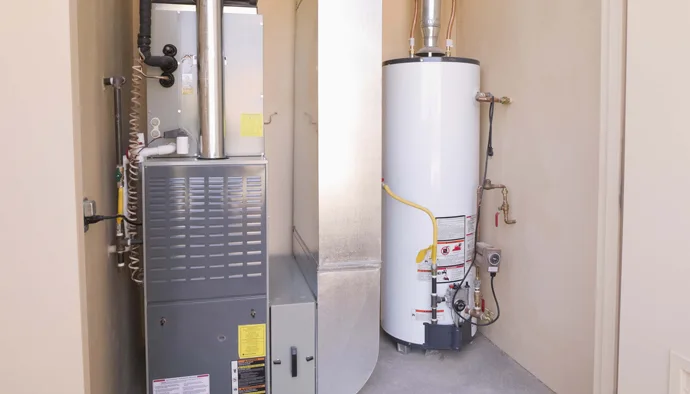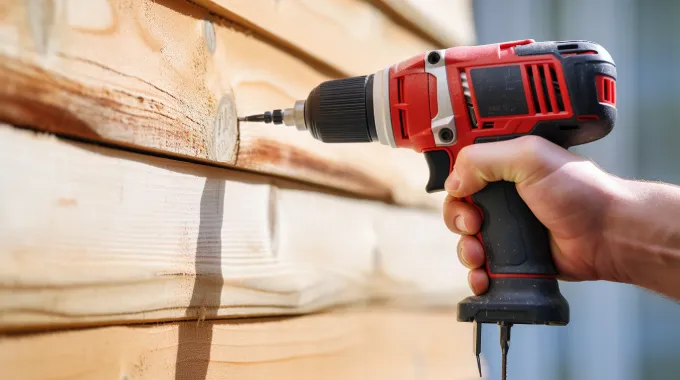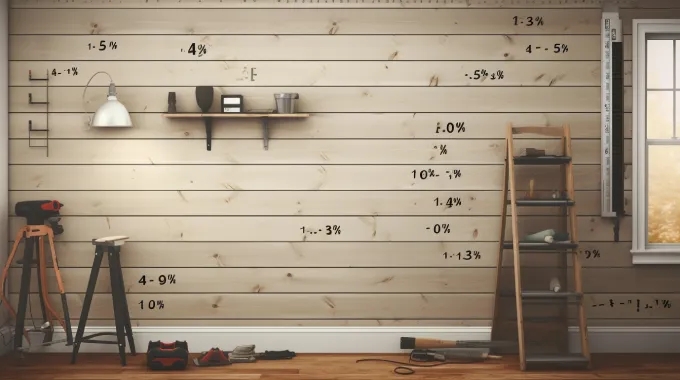Last Updated on January 25, 2023
The idea of venting a water heater without using a chimney may seem like an impossible task. But, it’s not as difficult as you might think. In fact, there are several ways to do this with some simple items that most people have lying around the house.
This article will walk you through how to vent a hot water heater without a chimney and help you decide which method is best for your needs.
What is a Water Heater, And Why Do We Vent Them?
A water heater is a tank that stores hot water until needed. The water is heated by either gas or electricity and then stored in the tank until someone turns on a hot water faucet. The water exits the tank and flows through the pipes to the faucet.
If you want to ensure that your water heater is working properly, one of the most important things you can do is to ensure that it is adequately vented. This means that the exhaust from the water heater is released outside of your home.
If you don’t vent your water heater, the exhaust will release inside of your home and could cause several problems, such as:
- Reduced air quality
- Carbon monoxide poisoning
- Structural damage to your home
How to Vent a Hot Water Heater Without a Chimney : Most Effective Methods:
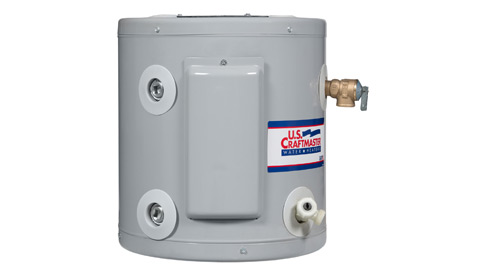
There are several ways to vent a water heater without a chimney.
The best way to vent your water heater will depend on your individual needs and the type of water heater you have.
Here are some of the most common ways to vent a water heater without a chimney:
1. Use a Power Vent
A power vent system is a fan that helps exhaust the hot air from your power vent water heater.
This is the best option if you have a flue gas water heater, as it will help expel the exhaust fumes outside of your home.
2. Use an Attic Fan
An attic fan can help exhaust the hot fresh air from your water heater and keep your home cooler in the summer.
3. Use a Roof Vent
A roof vent is a simple way to vent your water heater.
You can buy a roof vent connector at most hardware stores or install a roof vent yourself.
4. Use a PVC Pipe
If you don’t have a chimney, you can use a PVC pipe to vent your water heater.
You will need to purchase a PVC pipe and install it yourself.
5. Use an Exhaust Fan
An exhaust fan can help exhaust the hot air from your direct vent water heater and keep your home cooler in the summer.
You can buy an exhaust fan at most hardware stores or install an exhaust fan yourself.
6. Use a Stove Hood
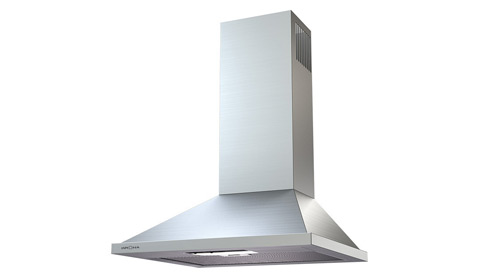
You can use it to vent your water heater if you have a stove hood.
You will need to purchase a stove hood and install it yourself.
7. Use a Wall Fan
You can use it to vent your water heater if you have a wall fan. Many wall fans have a built-in exhaust fan to help expel the hot air from your water heater.
8. Use an Air Conditioner
Air conditioning can help exhaust the hot air from your water heater and keep your home cooler in the summer.
9. Use a Window Fan
Window fans can help exhaust the hot air from your water heater and keep your home cooler in the summer.
10. Use a Swamp Cooler
A swamp cooler is a great way to keep your home cool in the summer, and it can also be used to vent your water heater.
The best way to vent your water heater will depend on your individual needs and the type of water heater you have.
Which Method is Suitable for You?
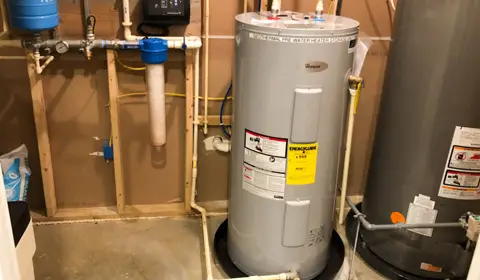
Now that you know how to vent your water heater without a chimney, it’s time to decide which method is suitable for you.
Each method has its benefits and drawbacks, so you will need to decide which one is best for your needs.
Here are some things to consider when deciding which method is suitable for you:
1. How Much Money Do You Want to Spend?
Some methods, such as using a power vent or an attic fan, can be expensive.
Others, such as using a PVC pipe or an exhaust fan, are more affordable.
2. How Much Work Do You Want to Do?
This can be a deciding factor for some people, while others don’t mind doing a little bit of work. If you think you can do the work yourself, then some of the more affordable methods, such as using a PVC pipe or an exhaust fan, might be right for you.
3. How Much Space Do You Have?
Space can be a factor for some people, especially if you live in a small home. If you don’t have a lot of space, using a power vent or an attic fan might not be the best option.
4. How Hot Does Your Water Get?
Water that is too hot can cause problems with your water heater.
If you have an exhaust gas water heater, using a power vent might be the best option for you, as it will help expel the exhaust fumes outside of your home.
5. What Type of Weather Do You Have?
Weather can be a deciding factor for some people. However, most methods can be used in any weather.
The best way to vent your water heater will depend on your individual needs and the type of water heater you have.
6. How Often Do You Use Your Water Heater?
If you only use your water heater occasionally, then you might not need to vent it. However, if you use your water heater regularly, then you will need to vent it.
Each method has its benefits and drawbacks, so you will need to decide which one is best for you.
What if I Don’t Vent My Water Heater?
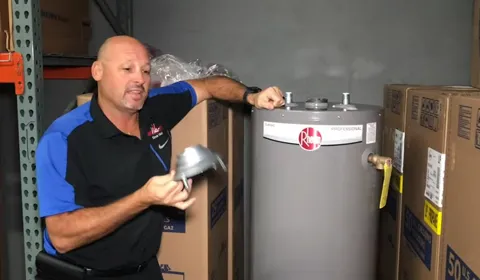
If you don’t vent your water heater, it can cause your water heater vent problems. Here are some of the issues you might experience if you don’t vent your water heater:
- The water will not be as hot as it should be.
- The water will not last as long as it should.
- The exhaust fumes from the water heater will escape into your home.
- The water heater might not work as well as it should.
- The water heater could catch on fire.
FAQ’s
How Much Money Will I Spend On this Process?
It depends on the method you choose. The more expensive methods would be getting a power vent or an attic fan. If you decide to do it yourself, you can spend as little expense.
How Much Work Will I Have to Do?
Again, this depends on the method you choose. The more expensive methods, such as getting a power vent or an attic fan, will require more work. If you decide to do it yourself, you might have to do some drilling or cutting.
How Often Do I Use My Water Heater?
If you only use your water heater occasionally, then you might not need to vent it. However, if you use your water heater regularly, then you will need to vent it.
Conclusion
We hope this article has helped you decide which method is right for your individual circumstances and preferences. We want to remind you of the dangers of not ventilating your water heater. It could cause problems or even lead to an explosion if too much natural gas is in the tank. Be careful when installing your ventilation system, and follow all the safety guidelines.
